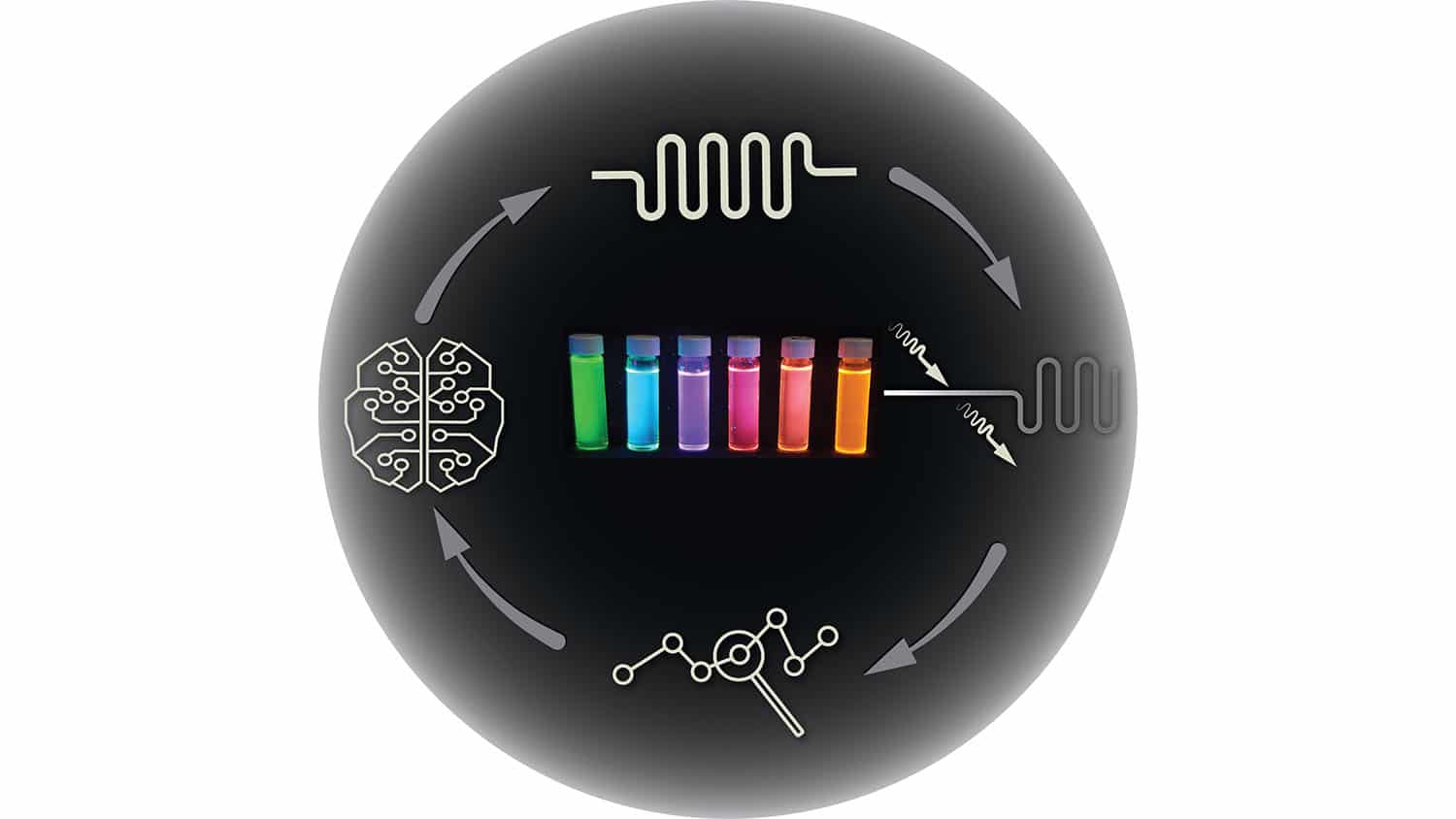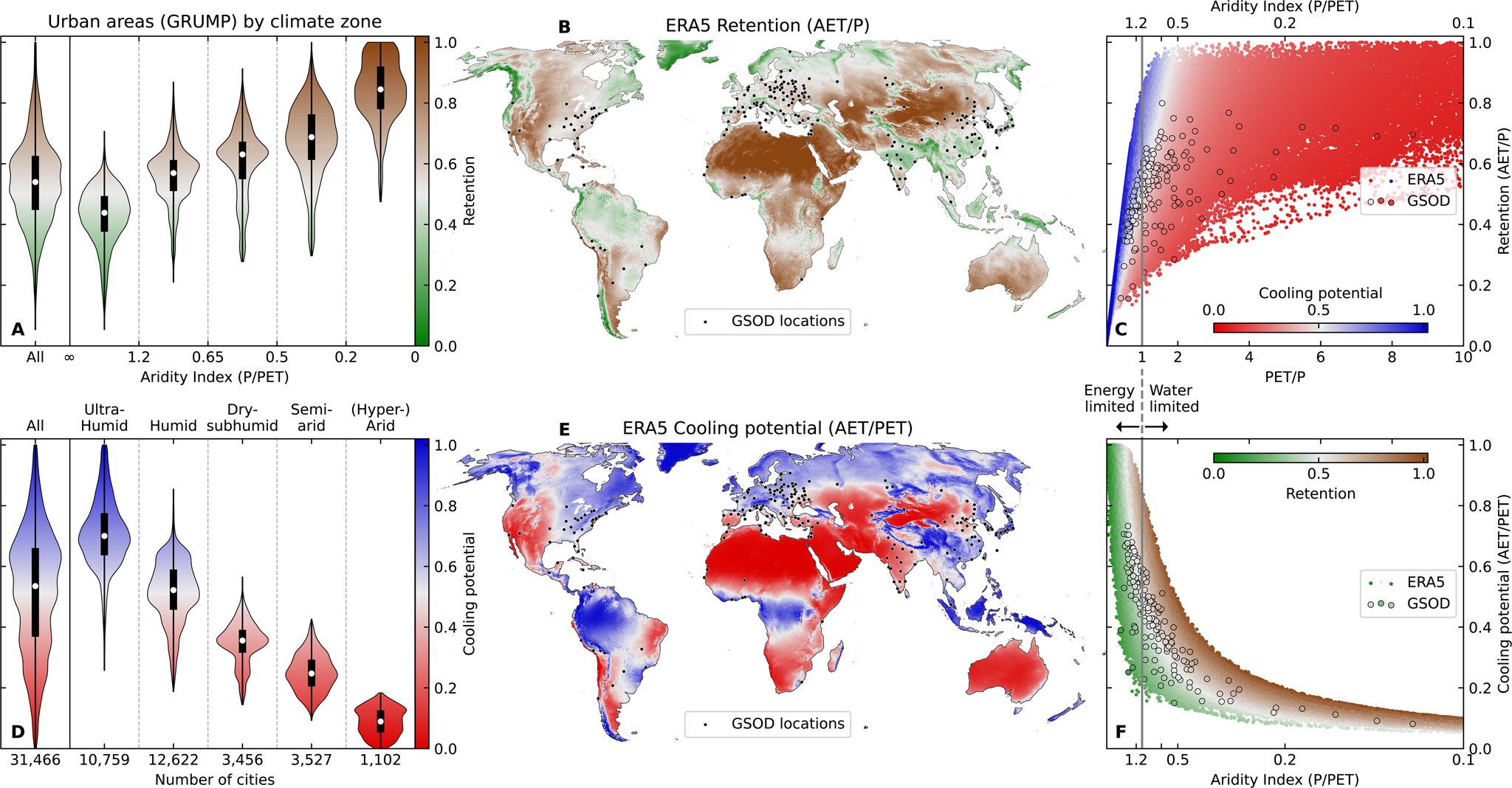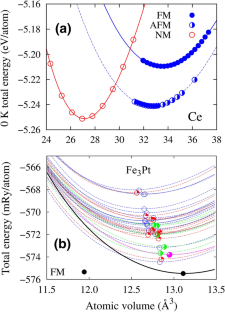2022-03-16 ノースカロライナ州立大学
この新技術は、アボルハサニ氏の研究室が2020年に発表した「Artificial Chemist 2.0」のコンセプトを発展させたものです。
この新しい自動運転ラボ、望ましい特性の組み合わせを得るためにMHPナノクリスタルをどのようにエンジニアリングすればよいかを、より速く、より効率的に理解する手段にもなります。新技術の動作のビデオは、https://www.youtube.com/watch?v=2BflpW6R4HI でご覧いただけます。
論文「自動運転流体マイクロプロセッサによる自律ナノ結晶ドーピング」は、ジャーナルAdvancedIntelligentSystemsにオープンアクセスで公開されています。
<関連情報>

“Autonomous Nanocrystal Doping by Self-Driving Fluidic Micro-Processors”
Authors: Fazel Bateni, Robert W. Epps, Kameel Antami, Rokas Dargis, Jeffery A. Bennett and Milad Abolhasani, North Carolina State University; Kristofer G. Reyes, University at Buffalo
Published: March 13, 2022 in Advanced Intelligent Systems DOI: 10.1002/aisy.202200017

Abstract: Lead halide perovskite (LHP) nanocrystals (NCs) are considered an emerging class of advanced functional materials with numerous outstanding optoelectronic characteristics. Despite their success in the field, their precision synthesis and fundamental mechanistic studies remain a challenge. The vast colloidal synthesis and processing parameters of LHP NCs in combination with the batch-to-batch and lab-to-lab variation problems further complicate their progress. In response, a self-driving fluidic micro-processor is presented for accelerated navigation through the complex synthesis and processing parameter space of NCs with multistage chemistries. The capability of the developed autonomous experimentation strategy is demonstrated for a time-, material-, and labor-efficient search through the sequential halide exchange and cation doping reactions of LHP NCs. Next, a machine learning model of the modular fluidic micro-processors is autonomously built for accelerated fundamental studies of the in-flow metal cation doping of LHP NCs. The surrogate model of the sequential halide exchange and cation doping reactions of LHP NCs is then utilized for five closed-loop synthesis campaigns with different target NC doping levels. The precise and intelligent NC synthesis and processing strategy, presented herein, can be further applied toward the autonomous discovery and development of novel impurity-doped NCs with applications in next-generation energy technologies.



